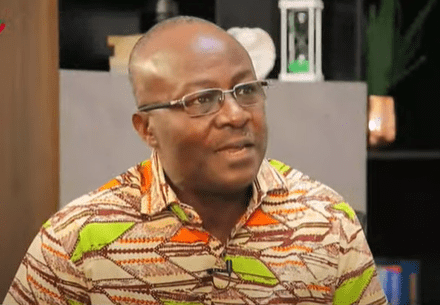adverts
”Whatever Is Happening On The Streets A Reflection Of Parliamentarians In Parliament”—Nana Ohene Ntow Speaks On Chaos At Ministerial Vetting
Senior Advisor to Alan Kyerematen, Nana Ohene Ntow, has voiced strong concerns over the state of Ghana’s Parliament, describing recent proceedings as chaotic and disgraceful.
His remarks come in the wake of the controversial vetting of ministerial nominees on January 30, which he believes reflects the broader challenges facing the country.
Speaking on The Keypoints on February 1, Ntow lamented the state of affairs in Parliament, arguing that the conduct of lawmakers is eroding public trust in the institution.
adverts
He described the escalating confrontations among parliamentarians as troubling and indicative of deeper governance issues.
Ntow drew a parallel between the chaos in Parliament and the struggles of ordinary Ghanaians. “Whatever is happening on the streets, in markets, or with the prices of goods and services is simply a reflection of what is happening inside the President’s Cabinet,” he asserted.
According to him, the current disorder in Parliament signals a governance crisis that needs urgent redress.
He recalled his tenure as General Secretary of the New Patriotic Party (NPP) under President John Agyekum Kufuor, emphasising that a well-managed Cabinet translates into effective national governance. He argued that the president’s ability to control and direct his cabinet plays a crucial role in setting the tone for the country’s leadership and societal order.
Addressing the ongoing tensions between the minority and majority in Parliament, Ntow criticised what he termed as the “macho” posturing of the minority side.
He singled out the questioning style of Alexander Afenyo-Markin, describing it as excessive and counterproductive. Ntow argued that aggressive interrogation tactics only escalate tensions rather than promote constructive debate.
While acknowledging the importance of scrutinising ministerial nominees, he urged parliamentarians to focus on governance-related matters, economic policies, and development strategies.
He expressed disappointment in the line of questioning that often veers into personal matters such as nominees’ religious beliefs and alleged affiliations with secret societies. “How does spending valuable time on these personal issues help the citizens of Ghana, who need leaders to address survival, economic stability, and good governance?” he questioned.
Ntow also raised concerns about the effectiveness of leadership within parliamentary committees, particularly the performance of Bernard Ahiafor, chairman of the Appointments Committee.
He criticised Ahiafor for failing to maintain order during heated sessions, arguing that stronger leadership is necessary to prevent disorder from escalating.
He suggested that better procedural management, such as calling for breaks or temporarily suspending proceedings, could have helped diffuse tensions.
Although he did not call for Ahiafor’s removal, he urged a reassessment of leadership approaches to ensure smoother parliamentary processes. Without improved oversight, he warned, committee leaders risk being blamed for institutional dysfunction.
Discussing the recent suspension of three Members of Parliament by the Speaker, Ntow acknowledged the opposition’s protests but maintained that the overarching issue is the lack of respect for parliamentary decorum.
“What does it mean to call someone ‘honourable’ when their behaviour doesn’t reflect the dignity of the title? It’s a sad state of affairs when Parliament is no longer seen as a place of serious governance but a stage for personal disputes and theatrical posturing,” he concluded.
Ntow’s remarks resonate with growing public dissatisfaction over the conduct of lawmakers, as many Ghanaians increasingly view parliamentary debates as more about political showmanship than addressing pressing national issues.
His call for introspection and reform underscores the urgent need for Parliament to restore public confidence and refocus on its core legislative duties.


